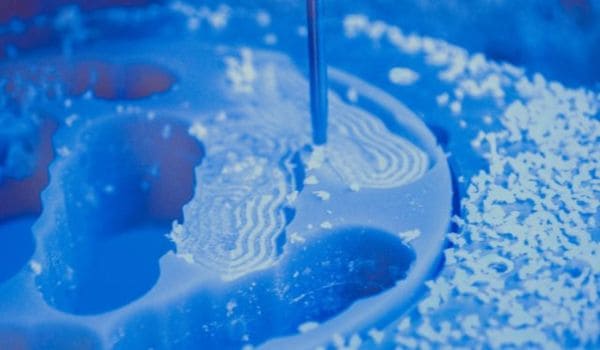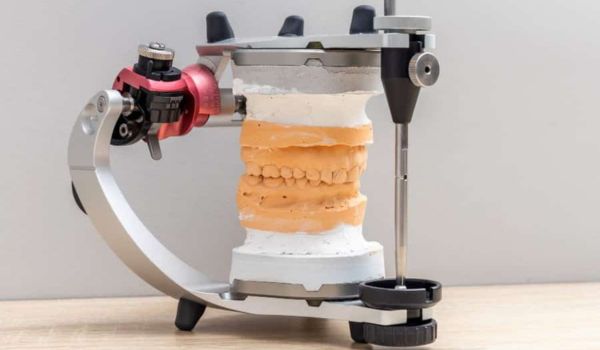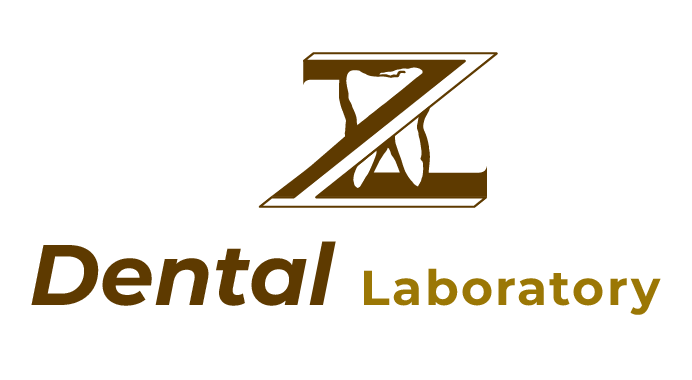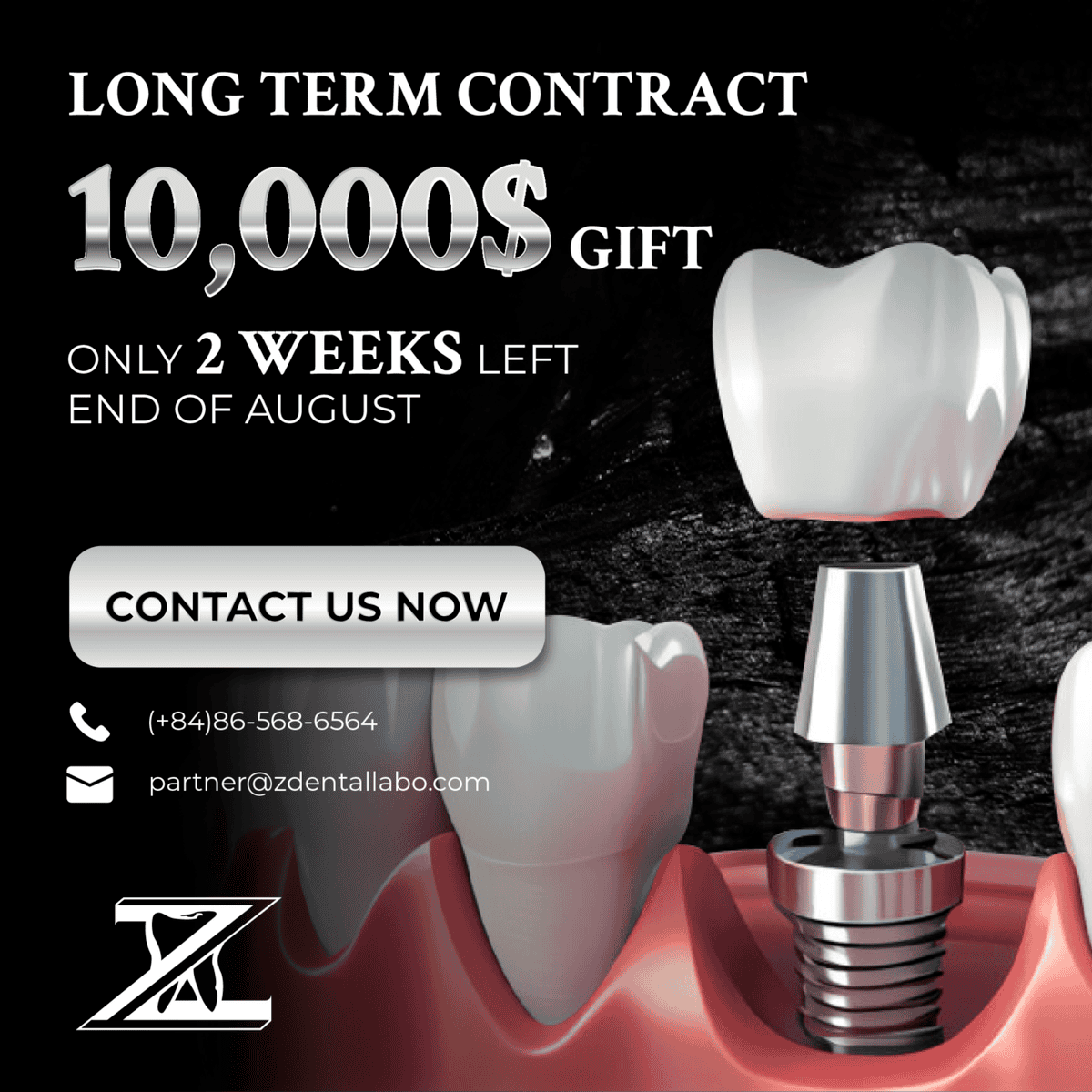Maintaining an in-house dental lab can be a significant financial burden for dental practices. The costs of equipment, materials, skilled labor, and ongoing maintenance can quickly add up, straining your budget and diverting resources from patient care. Fortunately, outsourcing your dental lab needs is a proven solution that offers numerous benefits, including cost savings, access to specialized expertise, and streamlined workflows.
In this comprehensive guide, we’ll delve into the world of dental lab outsourcing, examining its advantages, cost considerations, and the essential factors to consider when selecting a reliable outsourcing partner.
What are dental lab supplies and equipment?
Dental labs play a crucial role in creating custom dental restorations and appliances. Skilled technicians utilize a wide range of supplies and equipment to fabricate crowns, bridges, dentures, implants, and more. While having an in-house lab may seem appealing, it’s not always the most practical or cost-effective choice for every practice.
Dental lab supplies
Dental lab supplies encompass the materials used to create dental restorations. This includes:
- Impression Materials: Alginate, silicone, polyether, and other materials used to create accurate molds of teeth and gums.
- Gypsum Products: Plaster and stone used to create models from impressions.
- Waxes: Used for creating patterns and models for crowns, bridges, and dentures.
- Acrylic Resins: Used for denture bases, partials, and temporary restorations.
- Metals: Alloys used for crowns, bridges, and partial dentures.
- Porcelain: Used for veneers, crowns, and bridges.
You might interested in: Choosing the Right Material for Your Restorations – Zirconia vs.Metal
Dental lab equipment
Dental lab equipment includes the tools and machinery used in the fabrication process, such as:
- Model Trimmers: For shaping and trimming dental models.
- Articulators: To simulate jaw movement for proper restoration fit.
- Furnaces: To fire porcelain and metal restorations.
- Dental Lathes: For polishing and finishing restorations.
- CAD/CAM Systems: For digital design and milling of restorations.

Quality standards for supplies and equipment
High-quality dental lab equipment is essential for producing precise, durable, and aesthetically pleasing restorations. But how do you know if the equipment a lab uses meets the necessary standards? Here’s what to look for:
Certifications and Compliance:
- ISO Standards: The International Organization for Standardization (ISO) sets globally recognized standards for various types of dental lab equipment. Look for equipment that complies with relevant ISO standards, such as:
- ISO 13485: Medical devices – Quality management systems
- ISO 22674: Dentistry – CAD/CAM milled ceramic restorations
- Regulatory Compliance: Ensure the equipment complies with local regulations and safety standards in your region or country.
- Manufacturer Certifications: Reputable manufacturers often have their own certifications or quality marks that indicate their equipment meets specific performance and safety criteria.
Key Equipment Considerations:
- Accuracy and Precision: Equipment like milling machines, 3D printers, and articulators must be highly accurate to ensure precise fit and function of restorations.
- Durability and Reliability: Dental lab equipment should be built to withstand the demands of daily use and have a long lifespan to minimize downtime and replacement costs.
- Ease of Use and Maintenance: User-friendly interfaces and simple maintenance procedures can help ensure consistent and efficient operation.
- Calibration and Validation: Regular calibration and validation of equipment are essential to maintain accuracy and ensure compliance with quality standards.
Additional Factors to Consider:
- Technology: Modern dental labs often utilize advanced technologies like CAD/CAM systems, laser scanners, and 3D printers. Look for labs that invest in the latest technologies to offer the best possible results for your patients.
- Maintenance and Service: Inquire about the lab’s maintenance procedures and service contracts. A well-maintained machine is more likely to produce consistent and accurate results.
- Training and Expertise: The lab technicians’ skills and training are just as important as the equipment they use. Ensure the lab’s staff is knowledgeable and experienced in operating the equipment properly.
The Importance of Quality Assurance
A reputable dental lab will have a comprehensive quality assurance program in place. This typically includes:
- Equipment validation: Ensuring equipment is installed and operates according to manufacturer specifications.
- Regular calibration and maintenance: Scheduling routine checks and maintenance to keep equipment in optimal condition.
- Performance monitoring: Tracking equipment performance and identifying any potential issues early on.
- Documentation: Maintaining detailed records of equipment maintenance, calibration, and performance for traceability and quality assurance purposes.
How much do supplies in dental lab cost?
While the allure of having complete control over the fabrication process may seem tempting, it’s important to understand the true costs associated with running an in-house dental lab. These costs go far beyond the initial investment in supplies and equipment.
The Expenses: Equipment, Materials, and More
- Equipment: Costs can range from thousands to tens of thousands of dollars for essential equipment like furnaces, articulators, and CAD/CAM systems.
- Materials: Ongoing expenses for impression materials, gypsum, waxes, acrylics, metals, and porcelain.
- Maintenance and Repairs: Regular upkeep and unexpected repairs for equipment.
- Calibration and Testing: Ensuring equipment accuracy and compliance with standards.
- Utilities: Increased electricity, water, and gas usage for lab operations.
Waste Disposal: Proper disposal of hazardous materials.

Hidden Costs: Maintenance, Training, and Lost Chair Time
Training and Education: Keeping technicians up-to-date on the latest techniques and technologies requires ongoing training and education.
Lost Chair Time: If your dentist spends time in the lab, it means less time treating patients, which can affect revenue.
Opportunity Cost: The space occupied by the lab could be utilized for additional treatment rooms or other revenue-generating activities.
Why outsourcing a dental lab can help with supplies and equipment?
Here’s how outsourcing helps you save money on equipment and supplies, allowing you to allocate resources more effectively:
Equipment Savings:
- Eliminate Upfront Costs: In-house labs require a substantial initial investment in a wide range of equipment, from furnaces and milling machines to articulators and 3D printers. Outsourcing eliminates this upfront cost, freeing up capital for other essential needs in your practice.
- No More Maintenance Headaches: Dental lab equipment requires regular maintenance, repairs, and calibration to ensure accuracy and longevity. Outsourcing shifts these responsibilities to the lab, saving you both time and money.
- Technology Upgrades Without the Investment: Dental technology is constantly evolving. Keeping up with the latest advancements can be expensive. Outsourced labs often invest in cutting-edge equipment, allowing you to access these technologies without the hefty price tag.
Supply Savings:
- Bulk Purchasing Power: Dental labs purchase supplies in bulk, often at discounted rates. By outsourcing, you benefit from their bulk purchasing power, effectively lowering the cost of materials for your restorations.
- Reduced Waste: In-house labs often have excess materials that expire or become obsolete. Outsourcing eliminates this waste, as you only pay for the materials used in your specific cases.
- Inventory Management: Maintaining an inventory of dental supplies can be time-consuming and costly. Outsourcing eliminates this burden, as the lab handles all aspects of supply management.
Additional Cost Considerations:
- Labor Costs: In-house labs require skilled technicians, whose salaries, benefits, and training expenses can add up quickly. Outsourcing eliminates these labor costs.
- Space Savings: In-house labs occupy valuable space that could be used for additional treatment rooms or other revenue-generating purposes. Outsourcing frees up this space, potentially increasing your practice’s earning potential.
- Insurance and Liability: Operating an in-house lab may increase your insurance premiums and liability risks. Outsourcing transfers these responsibilities to the lab.
Choose Z Dental Laboratory for an affordable solution.
At Z Dental Laboratory we are proud to provide leading dental laboratory services, providing effective solutions for clinics. Notable achievements include European partners experiencing significant revenue growth—from $500-700K to $2M—in a short period of 18 months. Furthermore, a US partner achieved an impressive 32% reduction in operating costs through our collaboration. That is a testament to our effective way of working.
Z Dental Laboratory uses modern equipment and premium materials to ensure the highest quality and durability of restorations. Our streamlined workflow and commitment to efficiency allow us to deliver fast restorations, helping you maintain a smooth and efficient practice.
Cooperate with Z Dental Laboratory today to get top-quality supplies and equipment while still ensuring cost issues for your dentistry.
Fill in this form to get a FREE TRIAL to experience our high-quality products.



